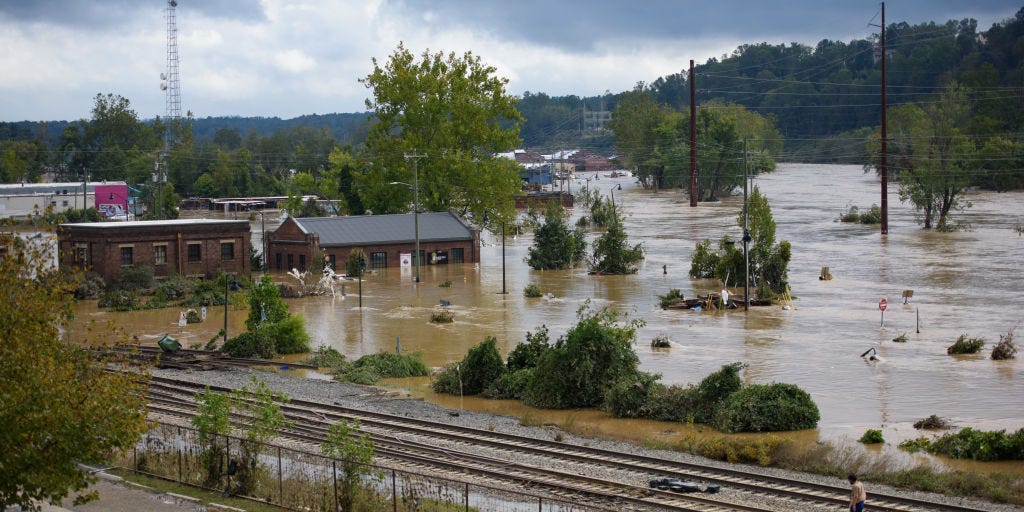- The Small Business Administration ran out of funding for its disaster loan program on October 15.
- The lapse could slow recovery efforts by small businesses damaged by hurricanes Helene, Milton.
- The SBA can’t resume loans until Congress passes new funding, likely in November.
Locally owned businesses in places like Asheville still reeling from Hurricane Helene were hit with another setback this week.
The Small Business Administration said on October 15 that its disaster loan program had run out of money. While the agency is still accepting applications for aid, it can’t make loans until Congress approves more funding. That is likely weeks away, because Congress isn’t expected to return until after the November election.
The delay is unacceptable, said Kit Cramer, president of the Asheville Chamber of Commerce that represents more than 1,500 businesses. She worries it will slow down the pace of recovery for artists, breweries, and other local shop owners who sustained devastating property damage. Many of them count on the fall tourism season to earn enough money to make it through the less-busy winter months.
“The vast majority of my membership is small, unique businesses that bring beauty to living here,” Cramer said. “That also means they don’t have deep pockets. They want to keep paying employees, but it’ll be hard. Some already had federal loans from the Covid period that they’re paying off.”
Cramer added that local business owners are also discovering that their insurance policies don’t have very comprehensive coverage.
The SBA offers business and nonprofit owners low-interest loans up to $2 million for property damage that isn’t covered by insurance and economic losses due to the disruption.
The SBA said it has received some 37,000 applications from survivors of Hurricane Helene so far. More than 700 loans totaling $48 million have been approved. For Hurricane Milton, the SBA has already received more than 12,000 applications.
The SBA’s funding lapse comes two weeks after President Joe Biden warned lawmakers about the rapidly depleting funds and urged Congress to reconvene. FEMA has said it has enough money for immediate disaster relief efforts following Hurricanes Helene and Milton, but the agency might have to stop funding longer-term recovery projects as soon as January without additional money from Congress.
House Speaker Mike Johnson, a Republican from Louisiana, said that Congress is tracking the hurricane damage closely and will have a more accurate picture of the financial needs next month. He expects bipartisan support for additional funding when lawmakers return to Washington on November 12.
In the meantime, Biden administration officials and business leaders are encouraging people to fill out applications for SBA disaster loans.
“SBA will continue to support homeowners, renters, businesses and nonprofits in processing their applications to ensure they receive assistance quickly once funds are replenished,” Isabel Casillas Guzman, the administrator of the SBA, said in a statement.
The SBA has a site in downtown Asheville at the Chamber of Commerce building and is working to set up other stations in the region to help people apply for aid, a spokesperson said.
Cramer said the region has never experienced such a catastrophe, which means this is the first time many residents are navigating disaster relief programs. The communities are learning as they go, but also are still focused on getting clean water and helping their neighbors.
Cramer lives in the mountain town of Swannanoa, North Carolina, where mudslides have swallowed roads, bridges, and homes, and power remains spotty. She had some roof damage and still doesn’t have much running water, but said she is grateful her house wasn’t washed away.
Are you a business owner, homeowner, or renter affected by the SBA’s pause in disaster loans? Contact cboudreau@insider.com.


